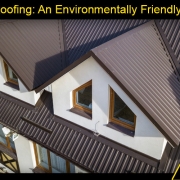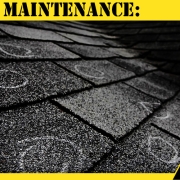Roof Warranty: How can you transfer your roof warranty?
When discussing the real estate business or buying and selling properties, warranties are very important. The scope of warranties is very vast; they can cover things like floor coverings to appliances in the home. The homeowner will feel safe, and the person buying the house will also be satisfied with his purchase. Warranties are important, but they are the most important when it comes to roofing. Here we discuss the basics of a roofing warranty and how you can transfer it.
What does a warranty mean?
We are discussing roofing warranties here, but before that, let’s try to understand what a warranty is? Merriam – Webster defines a warranty as “a guarantee of the integrity of a product and the maker’s responsibility for the repair or replacement of defective parts”.
Defective is the focus word here. Most of the warranties deal with the faulty parts of a product, and they are not concerned about the problems related to everyday use and aging of a particular product.
Who provides a roof warranty?
The manufacturers of roofs often provide a roofing warranty. However, roofing contractors can also provide roof warranties, called workmanship warranties. Usually, they are not concerned with the quality of roofing material but the quality of installation.
Manufacturer warranties are about the roofing material, and they assume that the contractor has followed the roofing installation procedure properly.
Roof contractors issue workmanship warranties, and usually, they are not transferable. On the other hand, manufacturers provide manufacturer warranties, and they are transferable. Here we are discussing them in detail.
Basic about a roof warranty
When you work for your roofing warranty, you need to focus on the following details.
Who is covered: It should be mentioned who this warranty covers. Usually, the roof owner is covered, and if the warranty is transferable, it will cover the subsequent owner.
What is covered: Roof has different parts and components, and it must be mentioned which parts are covered through the warranty. It also contains eligibility information and conditions, like a contractor’s proper installation. Moreover, it must contain information if it covers tear-off and the re-installation labor costs or provides coverage for the new material only.
Time Limits: The warranty coverage period may be different for different components like vents and shingles. It also varies with the features of the roof, like wind resistance or mold resistance.
What is not covered: Manufacturers mention details about the situations they don’t cover—for instance, improper roof installation, mishandling of material, and errors in roof preparation. Things like damage due to debris are also not covered.
Transferability: If the owner has the right to transfer the warranty to the next buyer, it must be mentioned in the warranty document.
Claim process: Every insurance company has a different claim process, which should be mentioned. Details about dispute resolution should also be written clearly.
Basic warranty terms
When discussing warranties, some terms like lifetime and limited are frequently used. The meaning of these words depends on how and where they are used. Some companies may use them together too.
Limited Warranty: Every warranty has a condition, so it is “Limited”. There are many limiting factors like time and cause of the problem. They also don’t cover things like labor costs and the cost of certain parts of the roof; it also comes under a limited warranty. Usually, roofing material is covered in warranties, but you have to see the details for other items.
Lifetime warranty: This type of warranty implies the duration of occupancy of the original owner. Every manufacturer defines “Lifetime” in his ways, which you can ask him about.
Limited lifetime warranty: When these words are used together, it means the warranty covers the time of occupancy of the original owner. Still, there are some limitations on time and product coverage.
Extended warranty: Some manufacturers offer extended warranties as well. The coverage is lengthier than standard ones; however, it may cost more. Moreover, extended warranties are offered under special circumstances only. Usually, manufacturers offer them for some specific products as well.
Are roof warranties transferable?
Warranty documents or contract describes if the roofing warranty is transferable or not. For transferable warranties, guidelines are very strict, as transfer should be proper and correct. Some companies ask for a high premium for transferable warranties.
Different manufacturers have different procedures for warranty transfer and even for different products. It must be completed within a given time-frame when the house selling deal is closed.
Transferring a roof warranty
Transferable warranties have different features, which are stated here:
Frequency of transfer: usually transferable warranty can be transferred once only. After the subsequent one, the owner will not be able to take advantage of the warranty.
Transfer fee: Manufacturers may charge some fee to transfer the same warranty to the next owner.
Reduced coverage: If the warranty is transferred to the new homeowner, it may come with reduced coverage for some components.
What is the role of the homeowner in warranty transfer?
Homeowners should register a warranty according to the guidelines of the manufacturer. He must keep all the documents and records safe for the transfer procedure. It makes transfer easier and quicker.
If the owner lost warranty documents?
If the warranty documents are lost or misplaced, you can still transfer the roofing warranty. Call the contractor and try to get the record of the roof purchase. If shingles were installed later, get their record as well. It can help you to transfer the warranty.
Advantages of transferable roofing warranty
Warranties ensure that the manufacturer of the roof is associated with his products. Roofs are very expensive, and a good roof can last for years, making it a valuable asset. A transferable roofing warranty can be a big plus when trying to sell your house. So try to get the right type of warranty to protect your house, money, and your future. If your roofing warranty is transferable you can enjoy many advantages including peace of mind and safety of your house.
About Gold Key Roofing
Our highly trained, certified roofing professionals inspect, test, evaluate and calculate all the necessary data from your project to provide your home with the ultimate protection – providing you with time-tested peace of mind.
In an industry where many roofers are in business today and out-of-business tomorrow, it is unusual to find a company like Gold Key Roofing with our experience and proven record of quality and reliability since 1975.

Roofing Services Offered in Orlando and surrounding Central Florida Areas:
| Residential Roof Repair | Roof Cleaning |
| Residential Roof Replacement | Roof Claims Assistance |
| Commercial Roof Repair | Blown-In Insulation |
| Commercial Roof Replacement |













